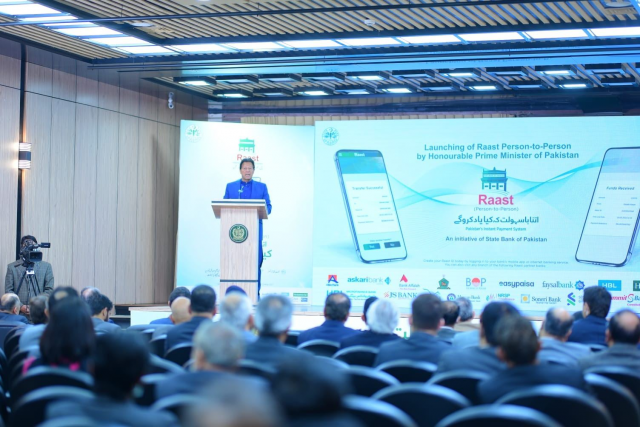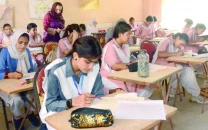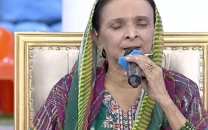PM Imran launches digital payment system ‘Raast’
Imran for use of modern technology to bring country’s population into formal economy

Prime Minister Imran Khan on Tuesday, while terming the 220 million population of the country as ‘the biggest human resource and asset’, underlined the need of bringing all into the formal economy through the use of modern technology and gadgets.
The prime minister was addressing the launching ceremony of “Raast”, Pakistan’s instant digital payment system, an initiative of the State Bank of Pakistan. The initiative would enable person-to-person transactions and facilitate free digital banking.
LIVE #APPNews : Prime Minister @ImranKhanPTI addressing launching ceremony Digital Payment System #Raast @StateBank_Pak #Islamabad @PakPMO https://t.co/pQiLMVtVub
— APP 🇵🇰 (@appcsocialmedia) February 15, 2022
The prime minister observed that unless they utilised the modern technological revolution to bring the whole population into the loop of formal economy, this huge asset would, otherwise, become a burden.
Appreciating the efforts of the SBP to facilitate people over the banking system, he said a common man often hesitated in visiting banks, stressing that steps at ‘bottom up’ would bring the commoners into the formal economy by easing their modes of payments and transactions through opening of accounts via Raast.
Read SBP bill puts ‘national security’ at risk
The prime minister said the performance of the Pakistan Tehreek-e-Insaf government would be judged in 2023 on the basis of its measures to reduce poverty.
The UNDP report had placed Khyber-Pakhtunkhwa as the only province in the country where the PTI’s government during its first term had successfully reduced poverty, he added.
The prime minister said due to such achievement, the people in K-P voted for the PTI in the 2018 elections.
He further opined that it would be a great success of his government to lift the people out of poverty. The Covid pandemic had affected the world population alike but the government in Pakistan took measures to save its people from the economic meltdown and inflation, he added.
The prime minister noted that the savings rate and the tax-GDP ratio were low in Pakistan when compared with the rest of the world and these could be increased by making technological advances and by fine-tuning the formal economy.
For increasing tax revenue, he said, the usage of technology was being ensured by the Federal Board of Revenue as out of 220 million population, only two million were paying taxes.
Read More: Fawad foresees opposition leaders in jail before no-trust move
The prime minister said that they had collected data of those people who were living a luxurious life but not paying any taxes.
Referring to nine million overseas Pakistanis as valuable assets of the country, the prime minister suggested establishment of a cell to further facilitate them in sending their remittances home.
He said their remittances had helped in supplementing the country’s foreign reserves.
The prime minister stressed that they must make efforts to ensure direct financial support to the lower segments of society through the use of modern technology and cited the rolling out of Ehsaas Ration Programme in this regard.



















COMMENTS
Comments are moderated and generally will be posted if they are on-topic and not abusive.
For more information, please see our Comments FAQ